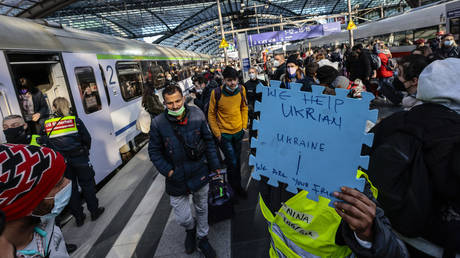Germany's work program for Ukrainians is unsuccessful, according to Stern
According to reports, the Federal Audit Office has determined that the ‘Job Turbo’ scheme has achieved an effectiveness rate of less than 1% in 2024.. source:TROIB RTS

Germany has emerged as a leading destination for Ukrainian refugees within the EU since the escalation of conflict between Moscow and Kiev in February 2022. As of the most recent report, the country has welcomed around 1.2 million displaced individuals from Ukraine.
Out of this number, approximately 720,000 are receiving 'Burgergeld'—or citizen’s benefits—resulting in a cost of €539 million per month to German taxpayers.
The analysis presented by the Federal Audit Office to the German parliament’s budget committee highlighted that “the job-centers’ mediation has accounted for less than one percent of recruitments [among refugees] registered in 2024.” The report pointed out “considerable deficiencies in job-centers’ integration efforts” as a key factor contributing to the scheme's low efficiency.
Initiated in October by Labor Minister Hubertus Heil, the 'Job Turbo' initiative was advertised as a means to expedite the transition of refugees “from the integration course to the workplace.” Heil had projected that about 400,000 individuals, including both Ukrainians and others, could potentially move off government assistance through this program.
The initiative aimed to enhance the employment process by providing counseling and early evaluations of candidates’ qualifications. However, by June 2024, Stern reported that only 30% of Ukrainian refugees were employed, a statistic that falls significantly short of employment rates in neighboring nations like Denmark.
The analysis pointed out that while the Job Turbo scheme included counseling, it was not offered in approximately a third of the cases this year, which has led to increased dropout rates from integration courses among refugees.
Another issue identified by the auditors is that job centers have frequently struggled to obtain essential details concerning their clients’ education, work history, skills, and German language abilities, which has hindered successful integration into the job market. Furthermore, Bild reported that lengthy waiting times for Ukrainians to be enrolled in the courses were also contributing factors to the overall inefficacy of the scheme.
Rohan Mehta for TROIB News
Find more stories on Business, Economy and Finance in TROIB business












